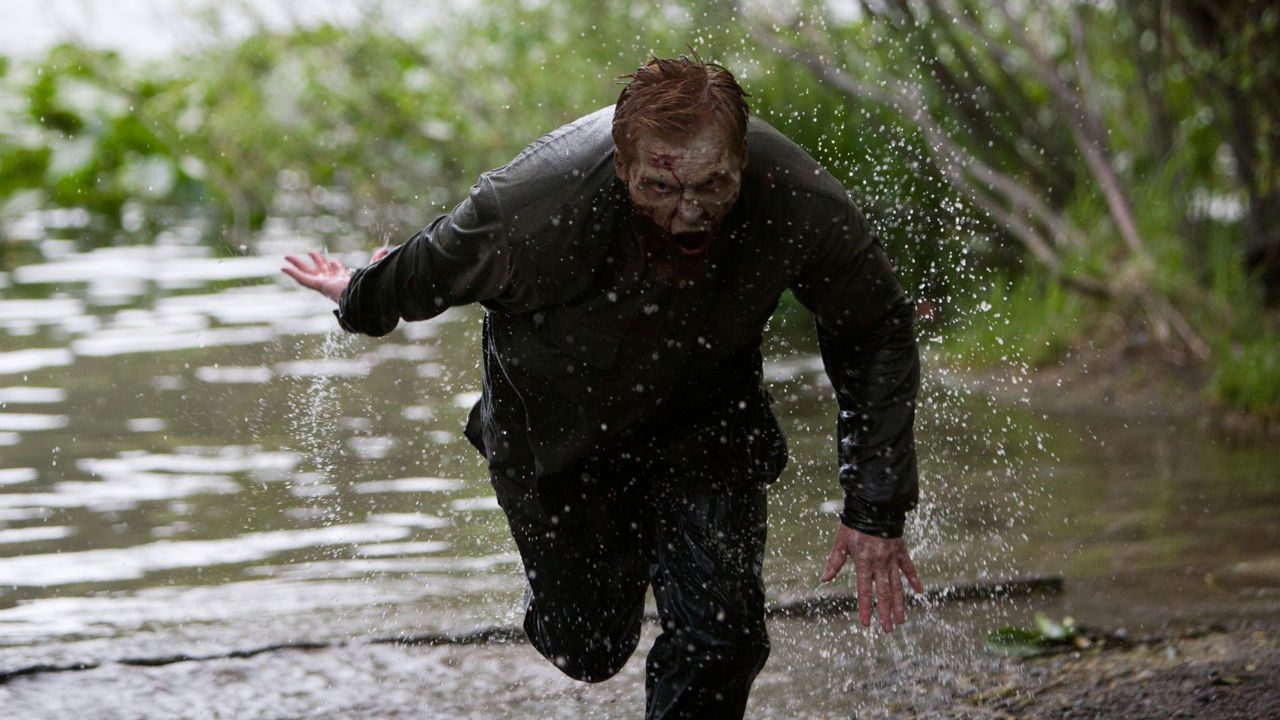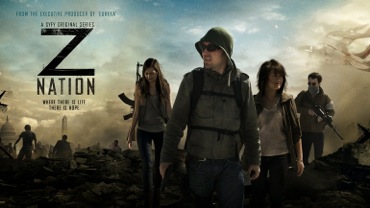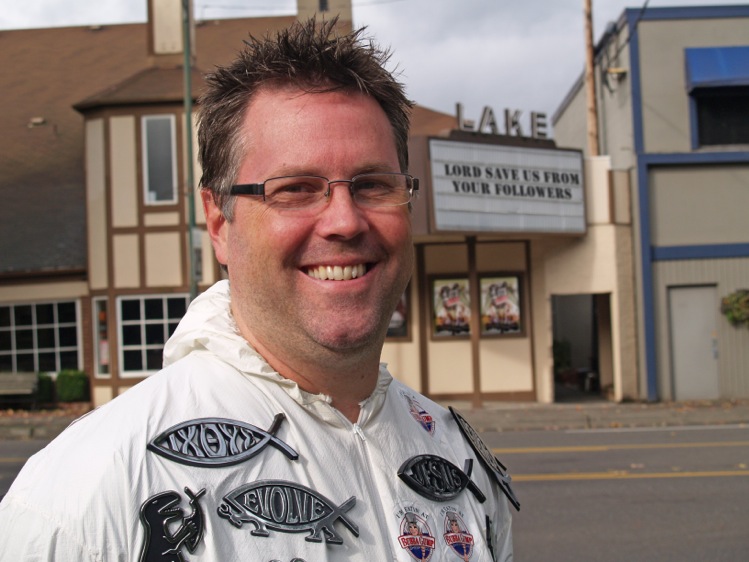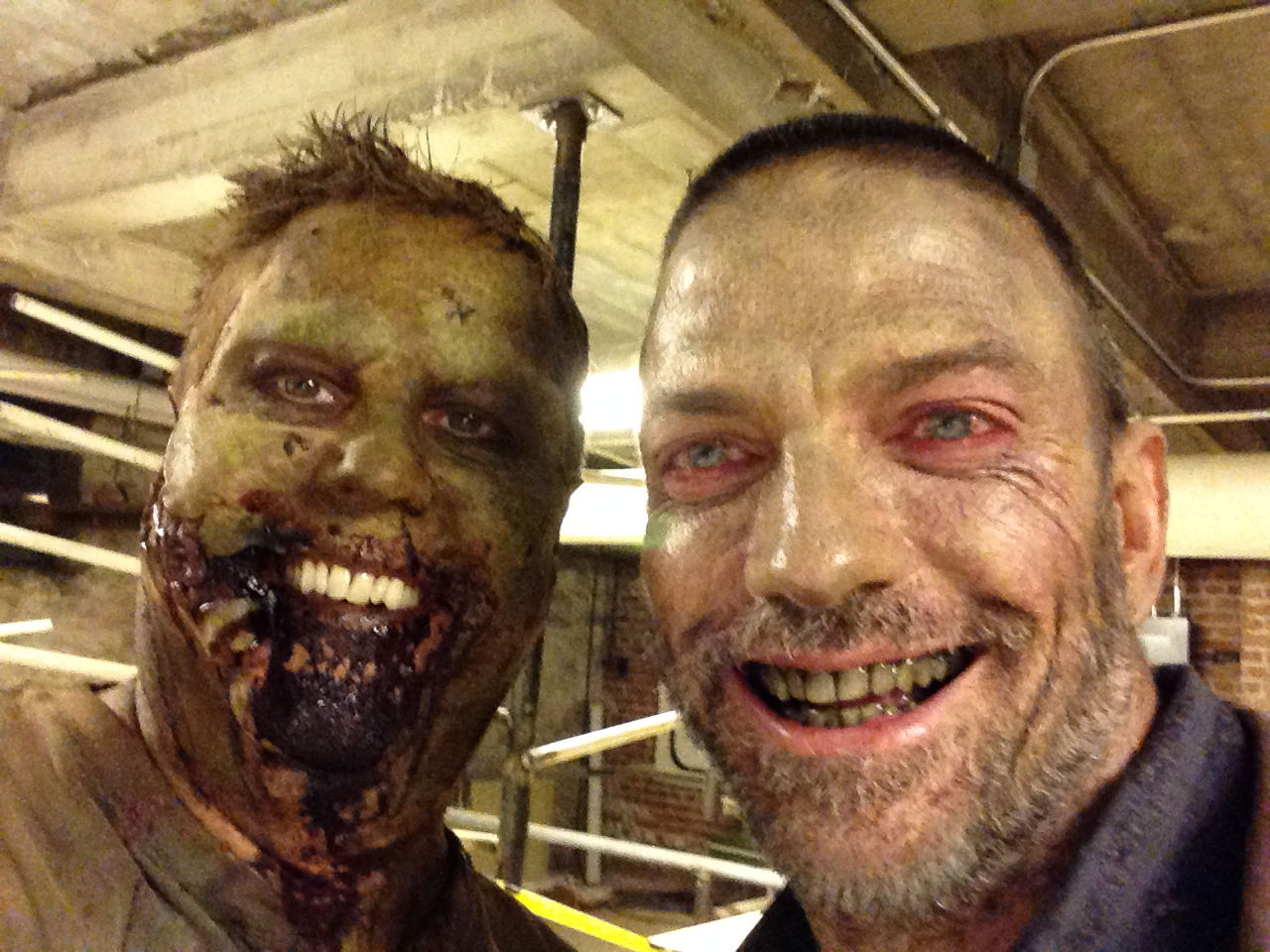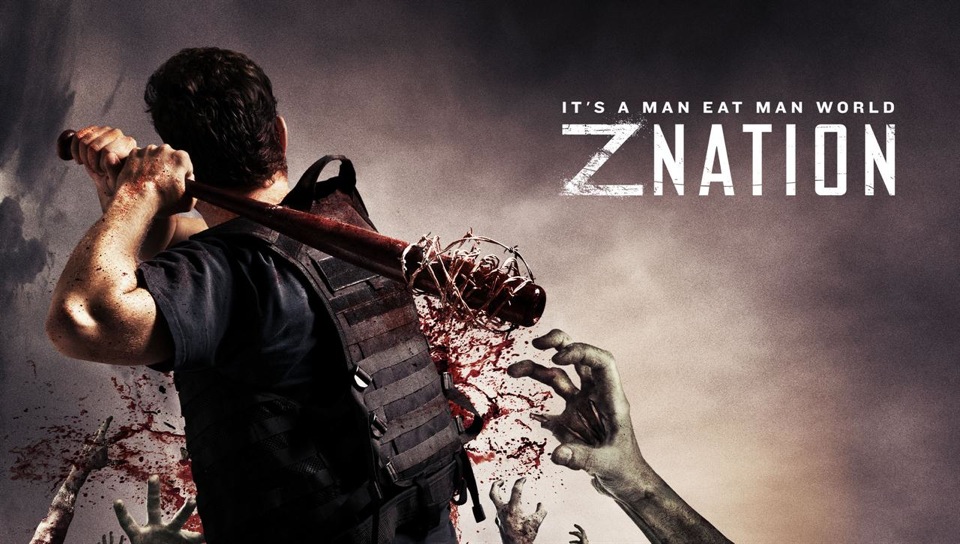In 2008, writer/filmmaker Dan Merchant got a lot of people talking about the human condition, moral dilemmas, and deeper questions about meaning and purpose.
His thought-provoking documentary, Lord Save Us From Your Followers (our review), was part social commentary, part cultural observation, part psychological exploration, and part theological examination. If you haven’t seen it, it’s well worth it.
Today, Merchant is exploring pretty much the same types of questions, albeit from a slightly different perspective.
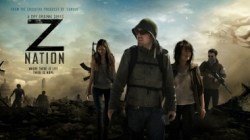
Zombies.
Yes, flesh-eating, brain-craving, wild-eyed zombies.
Merchant is one of the writers and producers behind Z Nation, a new series premiering tonight on SyFy (9/8c). It’s the latest attempt to feed America’s voracious appetite for all things zombie, with AMC’s hugely successful The Walking Dead as Exhibit A.
But while AMC’s hit is largely serious drama, all dark and depressing, Z Nation brings a bit of fun—and even some campy humor. (This is SyFy, after all, and Z Nation is produced by the same company that made the Sharknado movies. So, that.)
And yet Z Nation takes itself seriously enough to explore all of the above questions, and it’s surprisingly rich in spiritual undertones. The pilot episode alone features:
- a funereal scene with congregants singing “Shall We Gather at the River?”
- multiple references to giving and receiving mercy amidst the madness
- a character saying “I commit your soul to eternal peace” before another dies
- an exasperated protagonist saying, “God, I hate moral dilemmas!”
Merchant says the show’s writing team includes “an atheist, and agnostic, a Catholic, an ex-Catholic, a Lutheran, a Buddhist, and an apolitical evangelical—me.” That diversity, he says, makes the creative process all the more fun, especially when they’re exploring the human condition—the condition of pre-zombified living humans, that is.
We spoke with Merchant about Z Nation, and to find out what a nice Christian guy is doing in a place like this. Turns out to be a perfect place to explore big ideas.
As a Christian, what do you bring to the Z Nation creative process?
I bring what all of the creatives bring: a keen interest in how human beings operate, how we treat each other, and what we’re supposed to be doing on this planet together. As a Christian, I suppose I voice a sensitivity that some viewers may share. For example, I’m not a fan of taking the Lord’s name in vain, but it happens occasionally in the show.
Honestly, though, my take on hope, self-sacrifice, and compassion are not unique in our writers’ room. There are ranges of belief and nonbelief represented, but respect, kindness, and love are understood quite well by all at the writers’ table.
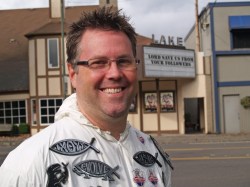
Why are zombies such a hot ticket in pop culture these days?
I think they’re some kind of a stand-in for something dark in our subconscious. Our country has, in essence, been involved in one war or another since 9/11, which has put us face to face with lots of death and fear. Perhaps the zombie genre helps some people to externalize that fear and process it.
In cinema history, we had a wave of antihero/vengeance/darkly real films in the wake of the Vietnam War (Mean Streets and Taxi Driver, Sam Peckinpah’s Straw Dogs, Clint Eastwood’s Dirty Harry films), movies that brought a realistic, violence to the screen we hadn’t seen before. I don’t think that was a coincidence; this zombie trend isn’t either.
I also wonder if zombies are a substitute for “the other.” These soulless, dead-eyed beasts, hell-bent on eating our brains, deserve to be destroyed. We can kill zombies without contemplating the morality of our actions; it’s a necessity in order to survive. Having heard a few political stump speeches, such a position has a familiar ring to it. If I can’t do anything about the faceless enemy I’m told is threatening my family, at least I can relieve some tension by watching my hero pike a zombie.
What else does the zombie genre say about us?
I think it points back to man’s hubris. We joke that the inevitable zombie apocalypse will be a self-fulfilling prophecy. Wrapped up in that is a suspicion about technology and the future, and it’s a tidy place to put all our fears of the unknown—which, of course, is that corner where all good horror stories live. It’s our way of processing and dealing with bigger fears by horsing around with make-believe fears.
Of course, as Christians we’re taught that God’s true love casts out all fear, but there are precious few who trust God that much. So maybe the zombie genre allows us to consider our fear, to try to understand its roots and deal with it.
Z Nation’s writers include an atheist, an agnostic, and people from a variety of faith backgrounds. How does that play out?
The most fascinating thing to me about our diversity is how similar we really are and how much fun it is to work together. We are all people who care about others, are basically kind, are generous as writers, and big fans of funny, shocking, moving entertainment.
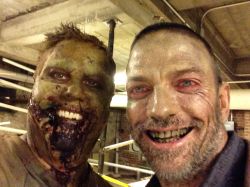 SyFy
SyFyHow does that faith diversity manifest in the TV series?
A few episodes get pretty dark, where we’re exploring what humans are willing to do to one another in the name of self-interest. For example, one episode depicts a religious cult emerging from the ruins. The lead writer for that one carefully researched Bible verses that could be twisted to mean what this cult leader needs them to mean—and it wouldn’t be the first time this has happened in history. Let’s just say “The Church of the Resurrected” takes on a new meaning! (laughs)
There was a conversation about the religious iconography to be used by this cult. I objected to a cross being used, so we settled on an upside-down cross to represent this twisted, postapocalyptic spinoff of my faith. I really like this episode, because it examines people’s need to believe (sometimes in anything) and the hubris of religious leadership. And in this case, even after the apocalypse, this cult is looking forward to the “real” end of the world. That strikes me as a funny and valuable commentary for those who have a hard time believing the idea of “on earth as it is in heaven.”
How does Z Nation explore existential questions?
Z Nation is, ultimately, a show about how human beings operate. Put these survivors in an extreme, horrible environment and see what makes them tick. Sadly, there are many people in the real world—in Iraq, Syria, Gaza, and other places—who are dealing with situations that are not terribly different. Z Nation might prompt viewers to say, “That’s not much more terrible than what people in the Middle East are going through,” or ask, “What would I do in that situation?” The writers’ fascination with why we are on earth is translated via a wild, crazy, violent TV show to an audience that participates more fully in the world.
Isn’t that a lot to ask from a zombie show?
I suppose, but that’s in the background of the creative work we are doing together. Encouraging empathy is something you’ll see in the Z Nation. Our characters say “Give Mercy” when they put down a Z, honoring the person they once were. In fact, “Have Mercy” is the name of the theme song you’ll hear every week on the show.
How does Z Nation differ from The Walking Dead?
The Z Nation approach is fast, furious, scary fun and we’ll give you something to think about. The Walking Dead has been a great show. Its realistic approach was novel when it debuted—but please, the existential soap opera tone wore me out. All of us on Z Nation wanted to have a show that moved fast, was wild and energetic, displayed brotherhood and teamwork, and left you in an upbeat place. Cause, you know, the apocalypse doesn’t have to be all doom and gloom, does it?
What are your “zombie rules” when writing the show?
In the writers’ room, we’re all familiar with the minor variations on the zombie lore from Romero’s original Night of the Living Dead to 28 Days Later (fast zombies), Shaun of the Dead (fun with zombies), Zack Snyder’s Dawn of the Dead remake (bleak, black comedy) and up through the realist approach of The Walking Dead.

In essence, we follow Romero’s Rules: the Zs are unthinking, and they crave brains/flesh for food. The zombie virus is airborne, everyone is infected. The most recently deceased (“fresh Zs”) are the fastest, most animated, most violent. The longer they are around, the more the Zs decay, the less of a threat they are and, eventually, they’ll starve to death.
Do your zombies have the ability to think or make moral choices?
Our zombies deliver the horror, but there’s more to the story and we have a few new wrinkles. But you’ll have to watch and see as the season evolves.
SyFy airs a lot of B movies and silly stuff, and Z Nation comes from the same company that brought us the Sharknado movies. Will this be more of the same?
First and foremost, Z Nation is a scary zombie show, heavy on action. The humor is more idiosyncratic, though there are some absurd moments. The characters are well drawn and relatable, and we don’t sacrifice anything for a cheap joke. But if such a joke is just sitting there, we’ll take it.
Mark Moring, a CT editor at large and a fan of campy horror movies, is a writer at Grizzard Communications in Atlanta.

